CRM: A Challenging Subject
Hardly any other industry collects as much data about its customers as the hotel industry. Along the customer journey, each guest leaves hundreds, if not thousands, of digital traces. Modern hoteliers need to be able to profitably leverage the opportunities this creates. However, it requires a sustainable digitalization and CRM strategy. But what can this strategy look like?
Data is created almost everywhere, when visiting the website e.g. as log files, during the booking process whether via IBE, OTA or directly in the hotel, data is located in the Property Management System (PMS), Point Of Sale, Spa system, table reservation system, newsletter tool, loyalty program, WiFi, etc. The list could be continued nearly randomly. Over the last few years, a proliferation of systems has developed, which are operated along the customer journey from the information phase, through the booking phase, the stay, to the CRM, mostly independently of each other. In almost every one of these systems, guest profiles are created and it is not uncommon for each guest to have several profiles stored for the same person.
In a study in 2018 of 4.5 million bookings in two of the leading PMS systems, we identified an average of 2.3 profiles for each returning guest. Due to a large number of systems in operation, experts assume that today a hotel has up to 30 different profiles per guest stored in different systems! The development of a comprehensive guest profile is therefore not possible.
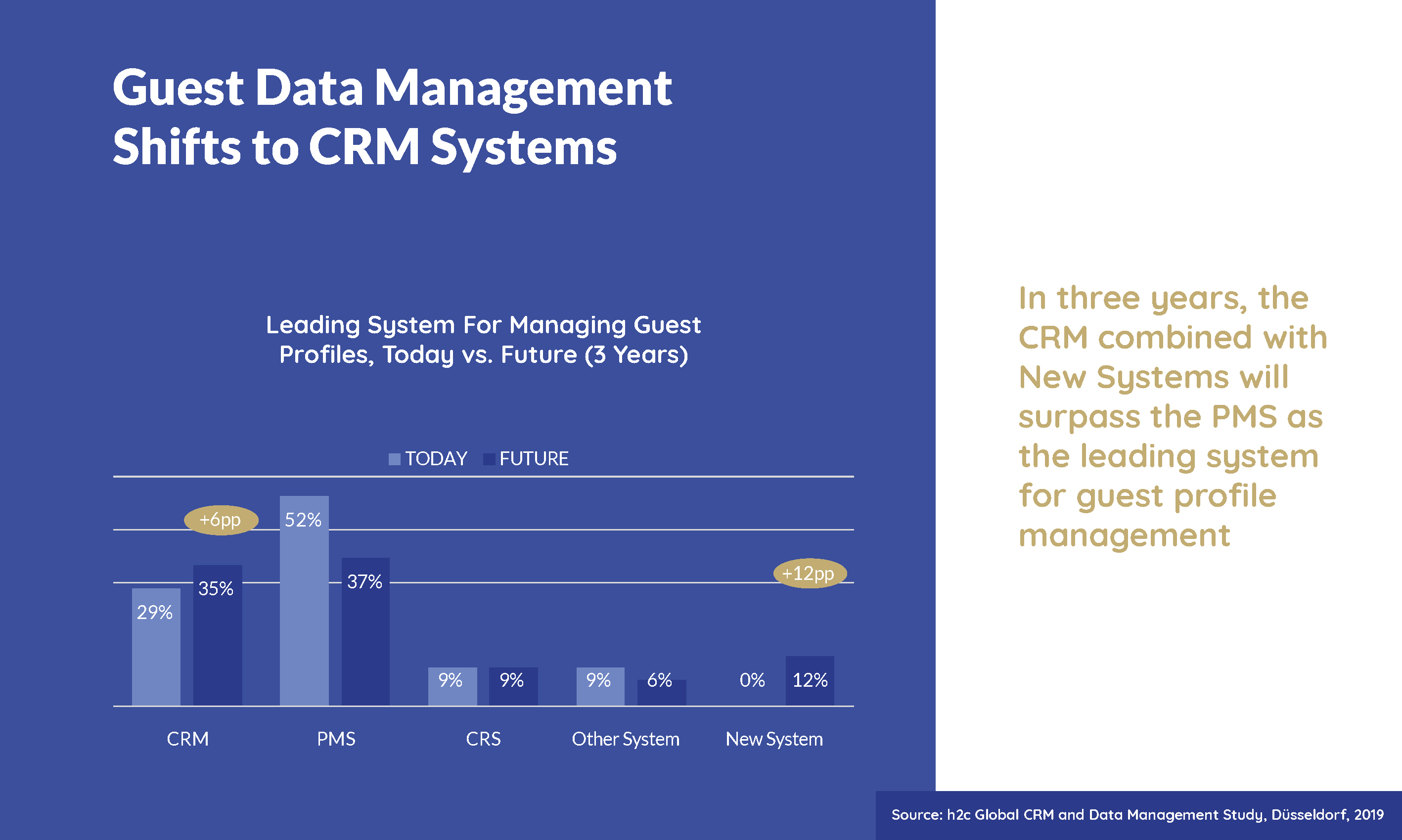
The core task of customer relationship management is to acquire profitable customers. This is achieved by addressing them individually at all touchpoints. In order to be able to offer this individuality, however, comprehensive guest knowledge is a top priority. This requires a central, clean guest profile. The central guest profile is virtually the Holy Grail and should be the central element of any digitization and CRM strategy.
Today, Big Data offers the opportunity to learn everything about your guests, thereby achieving an unprecedented level of individualization in marketing, sales, and, of course, service.
The hotel industry lies on a treasure of data that must be used. Two fundamental changes are necessary for this: Hoteliers should accept that the PMS is no longer the leading system in which the central guest profile is managed and secondly, the CRM is not the same as marketing and newsletter dispatch.
CRM consists of the three areas, CR-Marketing, CR-Operations and CR-Analytics. In order to operate a real Customer Relationship Management, first of all, it has to be determined where the central guest profile should be located. A study by h2c in 2019 showed that more and more of the central guest profile is located in CRM. But only a few CRM systems are suitable for this. The reason is simple, most CRM systems are actually pure customer relationship marketing tools. What is needed, however, is a central data management platform (CDM), which functions as the heart of the system and to which all systems with guest data are connected.
But centralizing data is only the first step, the most difficult is the one that builds on it, which is creating a central guest profile and the automated data cleansing required for this. Studies show that up to 75% of all CRM projects do not achieve the desired results due to bad data quality. Thus, the ability of a CRM system to cleanse data sustainably and continuously is one of the most important, if not the most important decision criteria in the selection of a system.
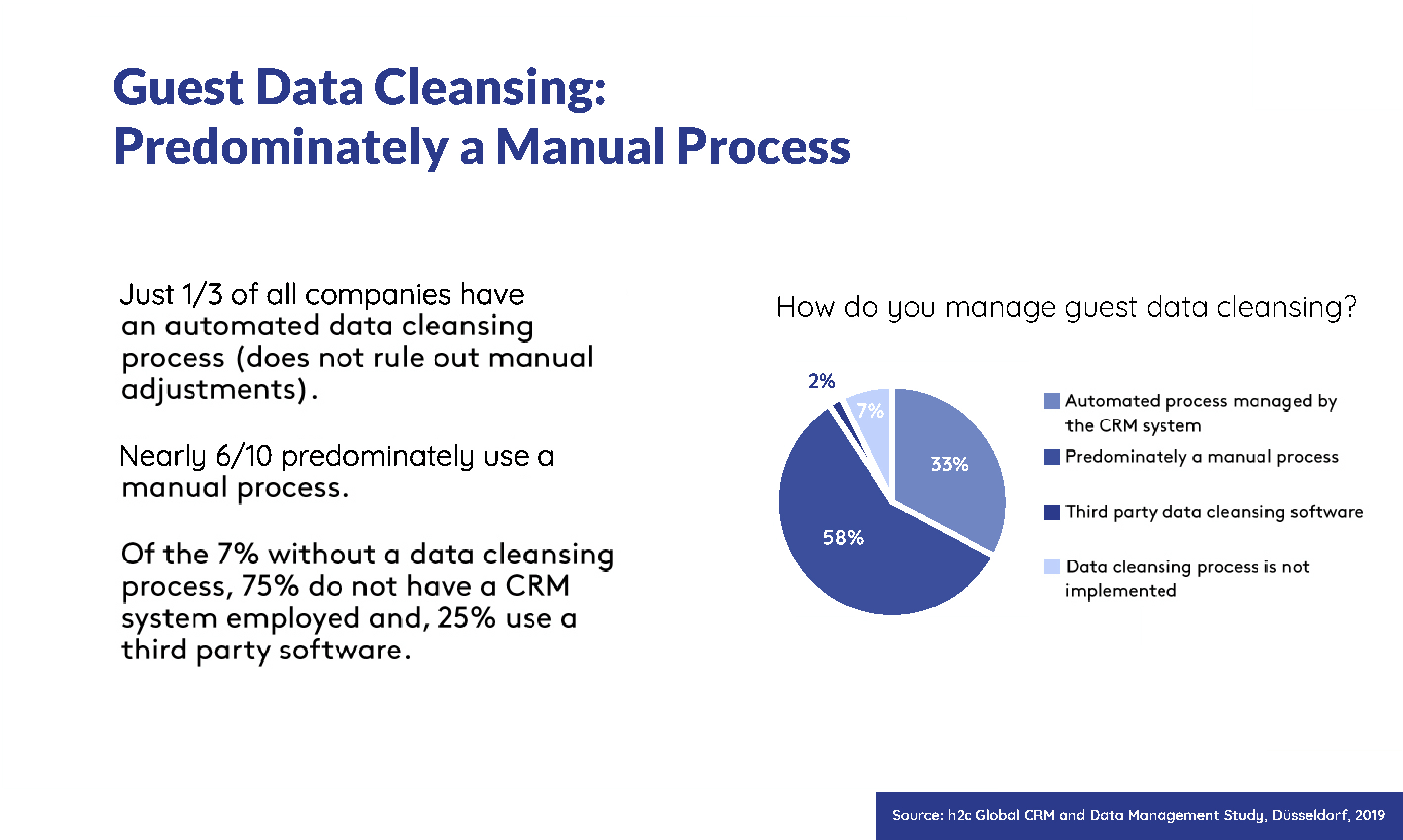
This is where many systems have their major weaknesses and use, for example, only a single match key, which searches for matches in first name, last name, and email address and merges duplicate data records. However, this is completely insufficient and even leads in many cases to a deterioration of data quality resulting in incorrectly merged profiles. Therefore, when selecting a system, it is important to pay special attention to how and what a provider and data cleansing understands. In a CRM or data management platform, vast amounts of data arrive every day, even in one single company. It should therefore be taken for granted that all processes must run automatically.
In the Big Data age, data is the new gold. But data is only raw material; like other raw materials, it must first be processed or refined to make it usable. After data cleansing (e.g. dailypoint™ Data Laundry), Artificial Intelligence (AI) is required, e.g. in the form of machine learning processes to process the data in guest knowledge. Here are two simple examples: The guest visits the hotel’s own website and clicks on the spa offers or the guest evaluates his spa treatment in the Post-Stay questionnaire. Ideally, the CRM system should automatically use this data and add the interest «Spa» to the central guest profile.
In a 100 room hotel, about 5.000 data points are generated every day in the different systems, which can be transformed into valuable guest knowledge in a central environment. Today, every hotel has a website and a questionnaire is also standard. And even though the data is available, the guest interest «Spa» is not automatically added to the profile. The reasons for this are the heterogeneous system landscape, poor data quality, and ultimately a lack of data management.
Thanks to digitalization and the associated (data) traces, it has never been easier to build up comprehensive guest knowledge so quickly. Employees who manually record interests and manage profiles or even interview the guest belong to the past. Have Booking.com, Amazon, or Google ever asked who you are? Of course not, modern companies use the existing data to build up the appropriate knowledge. Hoteliers should also use their data.
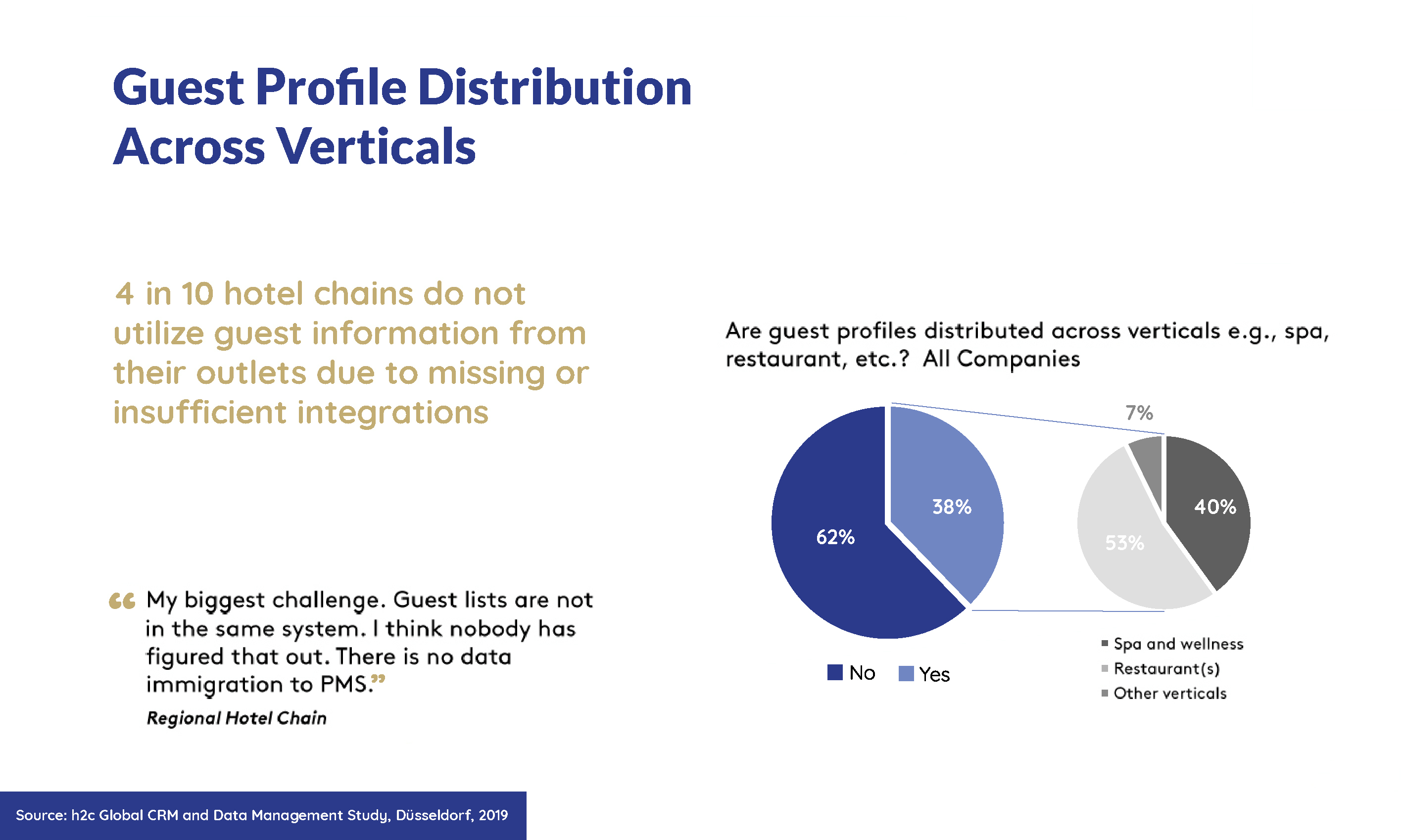
To use the new guest knowledge in the most target-oriented way, it makes sense to automatically create and weigh the interests utilizing AI (see e.g. dailypoint Profile Engine). Such a weighting can be used to select the contents of the e-mail newsletter for each recipient individually and to put them in the right order. This results in the highest possible content relevance for each individual recipient, which leads to increased bookings. According to h2c, over 85% of newsletters in the hotel industry today are not personalized.
The same applies, of course, to the very important topic of marketing automation. This is precisely what plays the most important role in marketing today. Based on the central guest profile, the transaction, and transaction data, the task of automated marketing is to offer the recipients the right content at the right time and if possible at the right price. Whether it is the birthday voucher or the automated follow-up via email once the guest leaves the hotel website without booking, everything is possible today with a comprehensive CRM, if the systems are connected on a central platform.
In order to connect systems, CRM systems should follow an open API (Application Programming Interface) strategy. It is important that CRM systems not only provide a platform for third party systems to connect but that they also integrate automatically into important systems, e.g. a hotel Property Management Systems, to which a CRM system must have certified interfaces. It is important to ensure that the data runs in both directions. It is not enough that data from the PMS is integrated into a central CRM platform, the existing guest knowledge must also run back into the connected systems so that this can be used for example in the operational department for better guest recognition.
Many CRM providers are not able to offer two-way interfaces today. This is mostly attributed to inadequate data cleansing processes. Keeping unclean data in a central database is one thing, but distributing it is highly dangerous and could lead to claims for damages. The providers naturally want to avoid this. Thus, a comprehensive two-way interface is not only a quality feature but also a basic requirement for comprehensive customer relationship management, which should not be limited to marketing.
For the further implementation of a CRM strategy, it is also important that all systems access the central guest profile. For example, the login on the hotel’s own website should only form the graphical front-end, the data should be retrieved from the CRM via the API or run back again. This avoids inconsistencies and data conflicts between the different systems. One problem in this context, however, is that many software providers want to create and use their own profiles. Here it is important to pay attention when selecting the systems.
The topics «Attributed Pricing» or individual revenue management should also be mentioned in this context. These are nowadays often mixed up with the booking engine. The goal is to offer the interested party suitable offers and prices during the booking and thus increase the probability of booking.
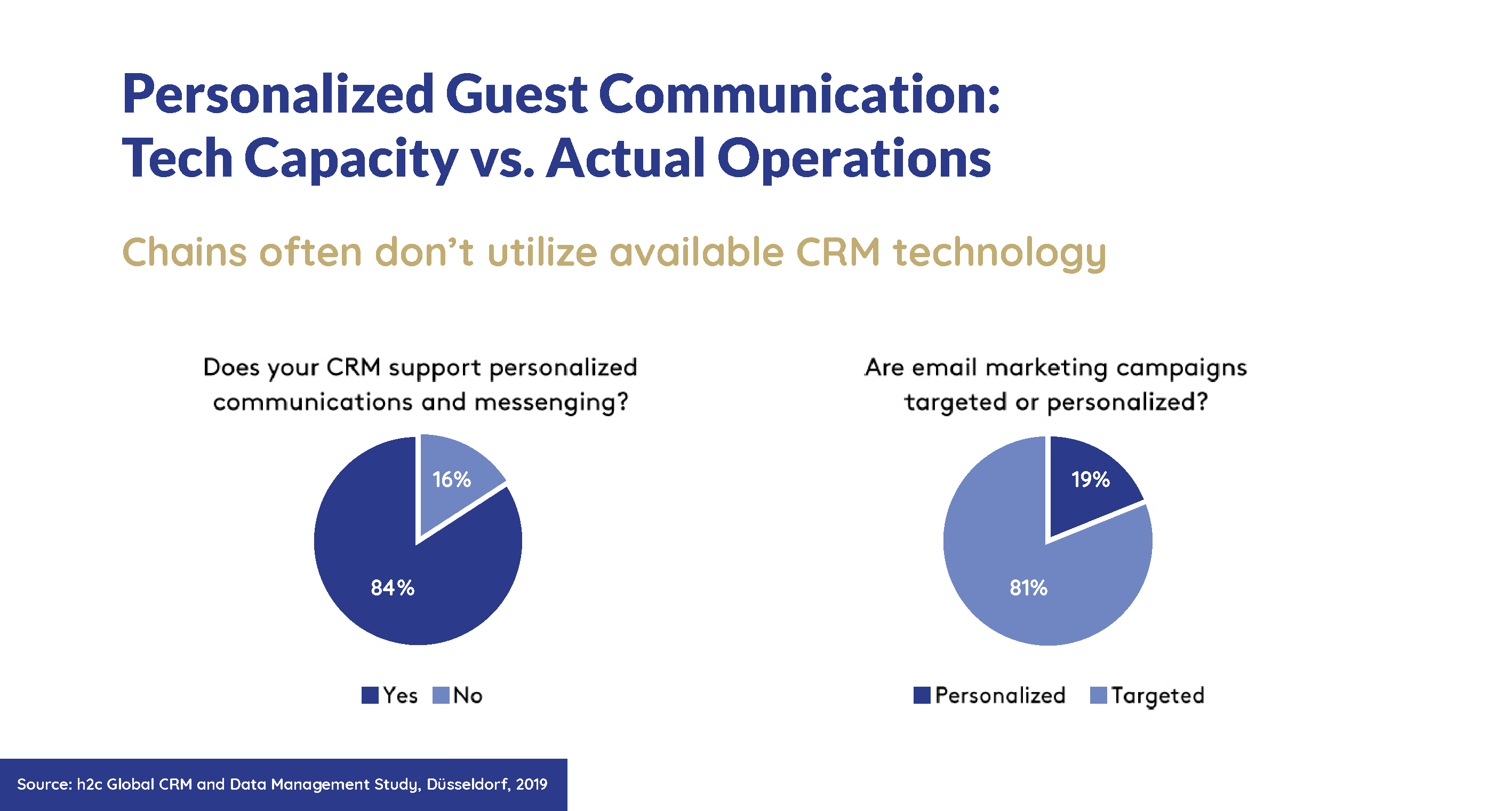
However, if the systems only access the existing profile data of the Internet Booking Engine (IBE), the data stock and thus the available guest knowledge is simply too small. With usually a 10% booking share via the hotel’s own website, it is quickly obvious that this cannot lead to good results. The basic requirement for this is that such systems draw the necessary information from a central platform with a central profile in which 100% of all guest data is available.
CRM or central data management is not only useful for economic or service reasons, but also from a legal point of view. Thus, GDPR requirements contain two areas that would be technically almost impossible to implement without central data management. On the one hand, these are the comprehensive guest rights with regard to information, correction, transfer, and deletion. For example, a hotel must be able to provide a guest with all stored information in an electronically readable format upon request. Today’s hotels are not able to do this without central data management and are therefore technically not compliant with GDPR.
Another important aspect of GDPR is the right to forgetting. Thus, the implementation of a data deletion concept is one of the most important tasks of a data protection officer. But especially here CRM systems have some serious weaknesses and are not able to follow the guidelines. But for a central data management platform or a real CRM, this should be an important element, especially when selecting a system. If you look at the GDPR from a data management perspective, it can also be seen as a legal requirement to thoroughly review your own digitization strategy and to act in the direction of central data management.
The hotel industry is often referred to as one of the industries that do not benefit enough from digitalization. To change this, hoteliers must first and foremost understand that the Property Management System is no longer the leading system today and that isolated applications must be a thing of the past. A successful digitalization and CRM strategy require the connection of all systems along the customer journey. This does not happen overnight, but the goal, namely the sustainable strengthening of one’s own competitiveness, should always be worth it.
About the Author

-
Dr. Michael Toedt is a renowned expert in the field of Big Data and CRM. After studying business administration with a focus on the hotel industry he started his career in the field of CRM at the Schörghuber Group of Companies, and in 2005 founded Toedt, Dr. Selk & Coll. GmbH. Since then TS&C, today is known as dailypointTM, has made a name for itself as a software company and think tank for data-driven management.
Michael Toedt wrote the CRM guide of the Austrian Hotel Association (ÖHV) and in 2015 the book «Big Data» was published, which has since become a standard work. He wrote his doctorate in 2016 on the influence of communication on sales figures in the luxury hotel industry.
Also find these complementary content pieces on CRM
- VIDEO l How do Hotels benefit from a CRM tool, and what to consider throughout the procurement process, and when setting the strategy with Chi Chan, CCO at Ireckonu
- PODCAST l What aspects to consider when implementing a CRM strategy in the Hotel Industry with Michaela Papenhoff from h2c, Allan Nelson from For-Sight and Niels Mekenkamp from Cendyn, hosted by André Baljeu
- INFOGRAPHIC l Holistic Customer Relationship Management Strategy approach utilizing the Trend Radar by Dr. Niels Hafner
Find all techtalk.travel editorials here.



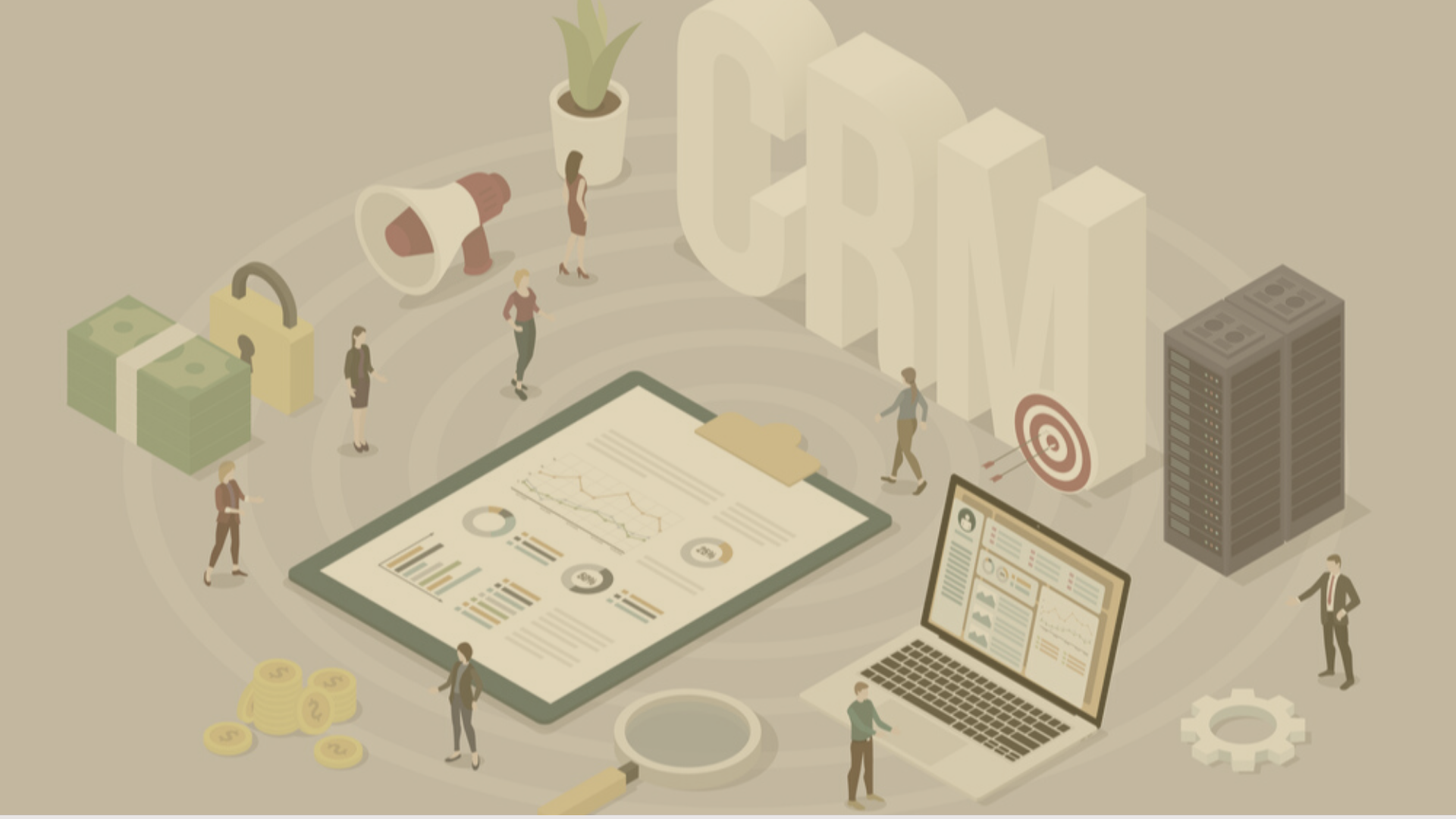
 Free download
Free download
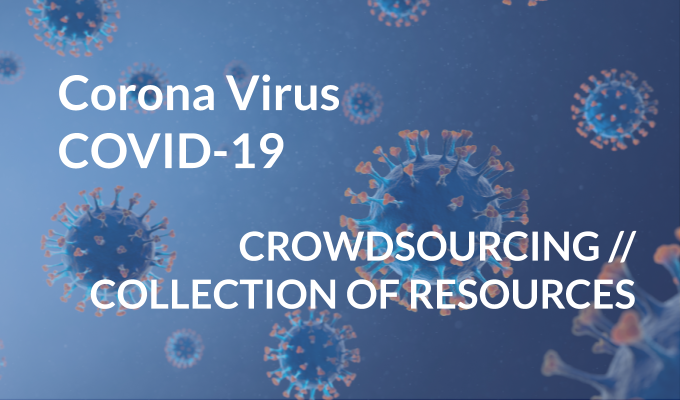
![V03: The History of Hotel & Travel Technology | [Updated] Infographic](https://techtalk.travel/storage/app/uploads/public/63f/e6f/ec8/63fe6fec80447817849943.jpg)
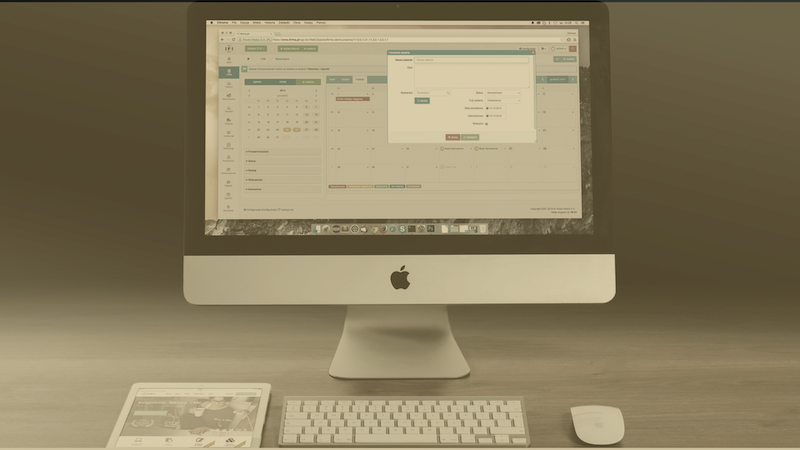
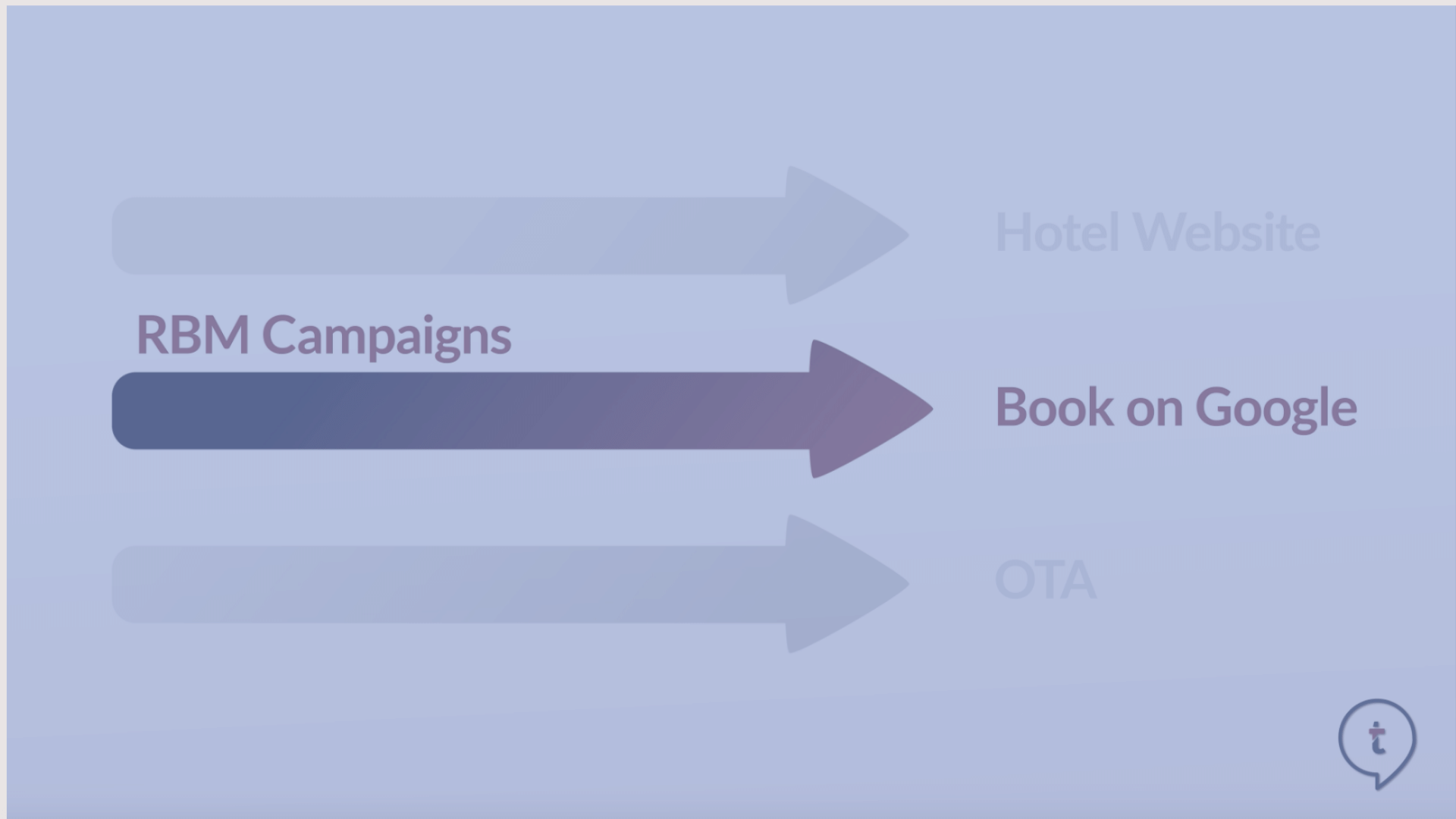

Create an account to access the content.
Get access to Articles, Video's, Podcasts, Think Tanks, Infographics and more.
Click “Sign In” to accept our
Terms of Service Privacy Policy